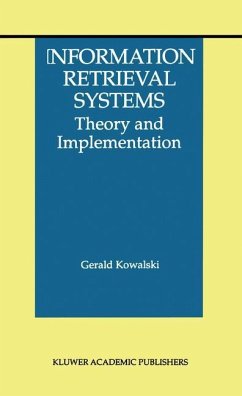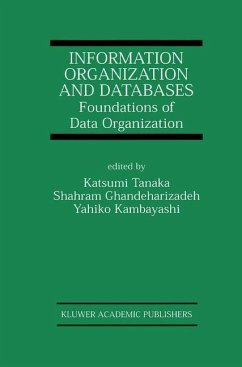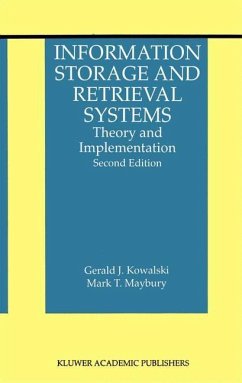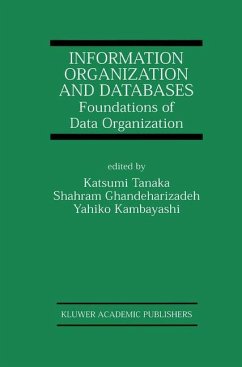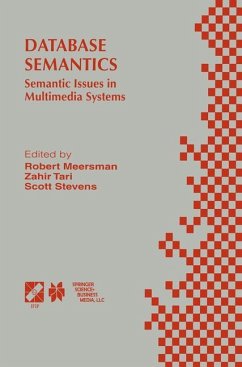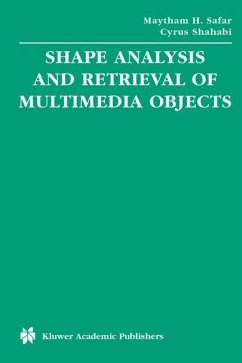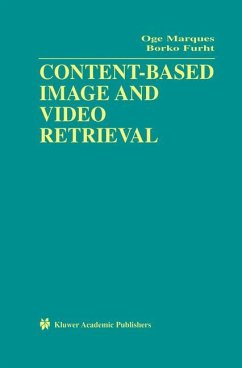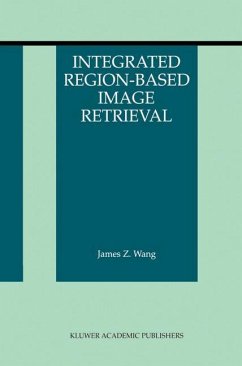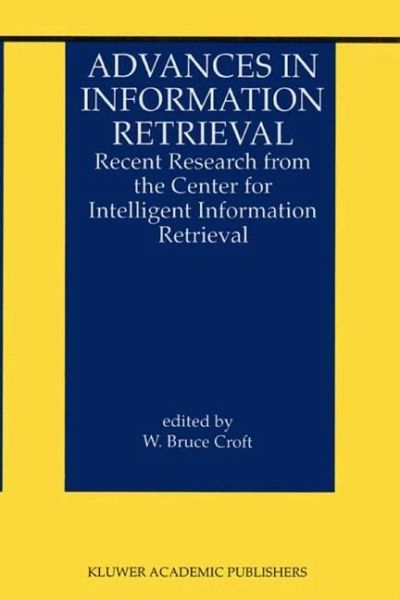
Advances in Information Retrieval
Recent Research from the Center for Intelligent Information Retrieval
Herausgegeben: Croft, Bruce; Croft, W. Bruce

PAYBACK Punkte
77 °P sammeln!
The Center for Intelligent Information Retrieval (CIIR) was formed in the Computer Science Department ofthe University ofMassachusetts, Amherst in 1992. The core support for the Center came from a National Science Foun- tion State/Industry/University Cooperative Research Center(S/IUCRC) grant, although there had been a sizeable information retrieval (IR) research group for over 10 years prior to that grant. Thebasic goal ofthese Centers is to combine basic research, applied research, and technology transfer. The CIIR has been successful in each of these areas, in that it has produced over 270 ...
The Center for Intelligent Information Retrieval (CIIR) was formed in the Computer Science Department ofthe University ofMassachusetts, Amherst in 1992. The core support for the Center came from a National Science Foun- tion State/Industry/University Cooperative Research Center(S/IUCRC) grant, although there had been a sizeable information retrieval (IR) research group for over 10 years prior to that grant. Thebasic goal ofthese Centers is to combine basic research, applied research, and technology transfer. The CIIR has been successful in each of these areas, in that it has produced over 270 research papers, has been involved in many successful government and industry collaborations, and has had a significant role in high-visibility Internet sites and start-ups. As a result of these efforts, the CIIR has become known internationally as one of the leading research groups in the area of information retrieval. The CIIR focuses on research that results in more effective and efficient access and discovery in large, heterogeneous, distributed, text and multimedia databases. The scope of the work that is done in the CIIR is broad and goes significantly beyond "traditional" areas of information retrieval such as retrieval models, cross-lingual search, and automatic query expansion. The research includes both low-level systems issues such as the design of protocols and architectures for distributed search, as well as more human-centered topics such as user interface design, visualization and data mining with text, and multimedia retrieval.



